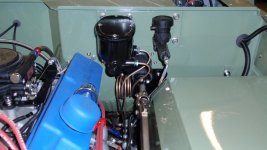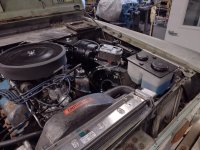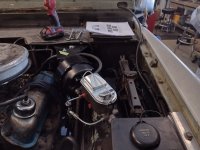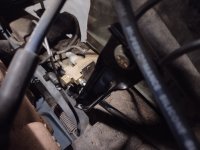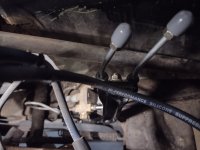YNOTBOB2007
Full Member
- Joined
- Oct 2, 2007
- Messages
- 207
I'm going to replace the hardlines from my master cylider to the proportioning valve...the rubber is cracking where it meets the metal crimp of the hardline. Drum brakes. I see there are rubber replacement and hardline replacements from the vendors. Does anyone have a preferance? The existing hardlines going into the MC have adaptor fittings on them to fit. Thanks











